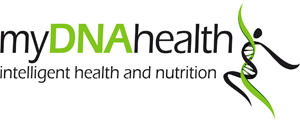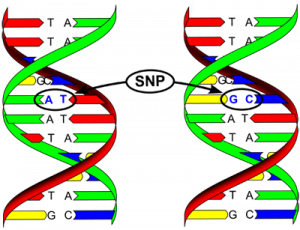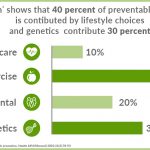National DNA Day is celebrating 15 years
National DNA Day commemorates the successful completion of the Human Genome Project in 2003 and the discovery of DNA’s double helix by James Watson and Francis Crick in 1953. In its 15th celebratory year the aim of National DNA Day is to offer the public an opportunity to learn about and celebrate the latest advances in genomics and explore how those advances might impact their lives.
The Human Genome Project
The Human Genome Project revolutionised genetics research and was officially completed in 2003. The project identifies human DNA sequence and highlights approximately 30,000 genes – our genome – and allows researchers to study the molecular basis of health and disease.
What is DNA and genetic variation?
Humans are a relatively young species – we have not had much time to evolve genetically and produce variations. Thanks to the Human Genome Project we know we each have approximately 3 billion base pairs of deoxyribonucleic acid (DNA), our genetic template. In the DNA double helix structure, bases from one DNA strand join with bases from the other: A and T form pairs and C and G form pairs. Most of the DNA is located in the cell nucleus and a tiny amount is mitochondria (our energy cells).
DNA is transferred from generation to generation, in other words, inherited. No two people are identical except for monozygotic twins and any two people can have about 10 million different base pairs which are different – 0.3% of our entire genome. Around the world all populations of humans are essentially the same – the differences lie in the individual. A slight change in the genetic code, such as the replacement of one DNA letter can results in an altered protein that may work differently within the body.
What’s the difference between mutations and genetic variants?
All changes to DNA code are mutations. However there is a spectrum of effects:
Mutation is associated with changes that severely impair function and result in disease.
Genetic variation or Gene variant is associated with changes that have a minor impact on function – myDNAhealth’s focus is on those that can be influenced by lifestyle and nutrition.




